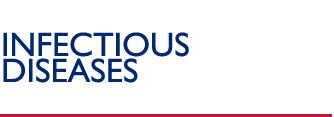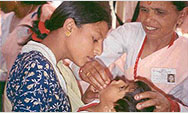Integrated Vector Management (IVM)
USAID has been developing a model Integrated
Vector Management (IVM) program for malaria control in Eritrea
since 1998. The early phases of this work are now bearing
fruit and the program is becoming a model for a rational,
evidence-based approach to malaria control. The Eritrea
NMCP, USAID, and Environmental
Health Project (EHP) have three objectives over the
life of the current EHP activity:
- Vector Control. Strengthen the NMCP's national vector
control program by improving the effectiveness and efficiency
of current control methods, demonstrating the feasibility
and effectiveness of new control methods, and strengthening
training, monitoring, and evaluation functions.
- Surveillance and Evidence-based Decision-making. Develop
a surveillance and epidemic early-warning system for malaria
in Eritrea, and work with central and zonal malaria coordinators
to increase their use of critical data for making decisions
regarding the type and timing of interventions used in
the NMCP.
- Operational Research. Strengthen the NMCP's capacity
to design, conduct, and analyze operational research studies
to better understand the epidemiology of malaria, the
distribution and behavior of malaria vectors, emerging
patterns of resistance to anti-malarial drugs, and the
effectiveness of interventions used to prevent and control
malaria.
|
|


